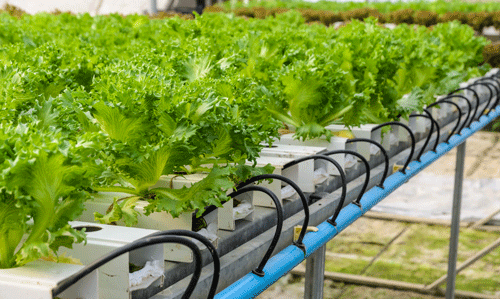 The current position from the National Organic Program (NOP) is that certification of enclosed, containerized, and/or hydroponic production systems are allowed as long as the producer can demonstrate compliance with the organic regulations. Such production systems are currently certified by USDA accredited certifying agents based on the existing crop standards and the operation’s organic system plan. Unfortunately, there are no specific standards for enclosed or containerized production systems, which has led to widely divergent certification practices. In 2022, NOP invited comments as to whether standards should be established for these specific production environments.
The current position from the National Organic Program (NOP) is that certification of enclosed, containerized, and/or hydroponic production systems are allowed as long as the producer can demonstrate compliance with the organic regulations. Such production systems are currently certified by USDA accredited certifying agents based on the existing crop standards and the operation’s organic system plan. Unfortunately, there are no specific standards for enclosed or containerized production systems, which has led to widely divergent certification practices. In 2022, NOP invited comments as to whether standards should be established for these specific production environments.
The Organic Trade Association supports greenhouse and container systems and the development of clear standards for these types of operations. Organic container production systems must implement practices that ensure a “natural and diverse soil ecology” in the container, and broader organic concepts such as maintaining and improving biodiversity and soil and water quality. Read more in our comments on NOP Rulemaking Priorities and our ongoing work to advance organic standards. OTA will continue to monitor the situation and engage members as new information is released and opportunities for public comment arise.
Background
The National Organic Standards Board (NOSB) passed a final recommendation in April of 2010 on production standards for terrestrial plants in containers and enclosures. This recommendation would prohibit hydroponic production of organic crops, with an exception for mushrooms, sprouts, and micro-greens, and allow container production of organic crops under specific provisions that support natural and diverse soil ecology within the container. Hydroponics is defined in the 2010 NOSB Recommendation as “the production of normally terrestrial, vascular plants in nutrient rich solutions or in an inert, porous, solid matrix bathed in nutrient rich solutions.” The Organic Trade Association submitted comments in support of this recommendation.
In 2017, NOSB considered another proposal on hydroponics and container-growing, but the proposal did not pass. The proposal would have imposed a new definition of hydroponics that included specific limitations on the quantity and frequency of liquid nutrient applications. The Organic Trade Association submitted comments to suggest that NOSB retain the definition for hydroponics accepted by NOSB in 2010s and to continue the work of setting clear guidelines for greenhouse and container production.
- 2017 COMMENTS ON HYDROPONICS AND CONTAINER-GROWING
- 2010 COMMENTS ON CONTAINER AND GREENHOUSE PRODUCTION
- 2010 NOSB RECOMMENDATION ON CONTAINER AND GREENHOUSE PRODUCTION
